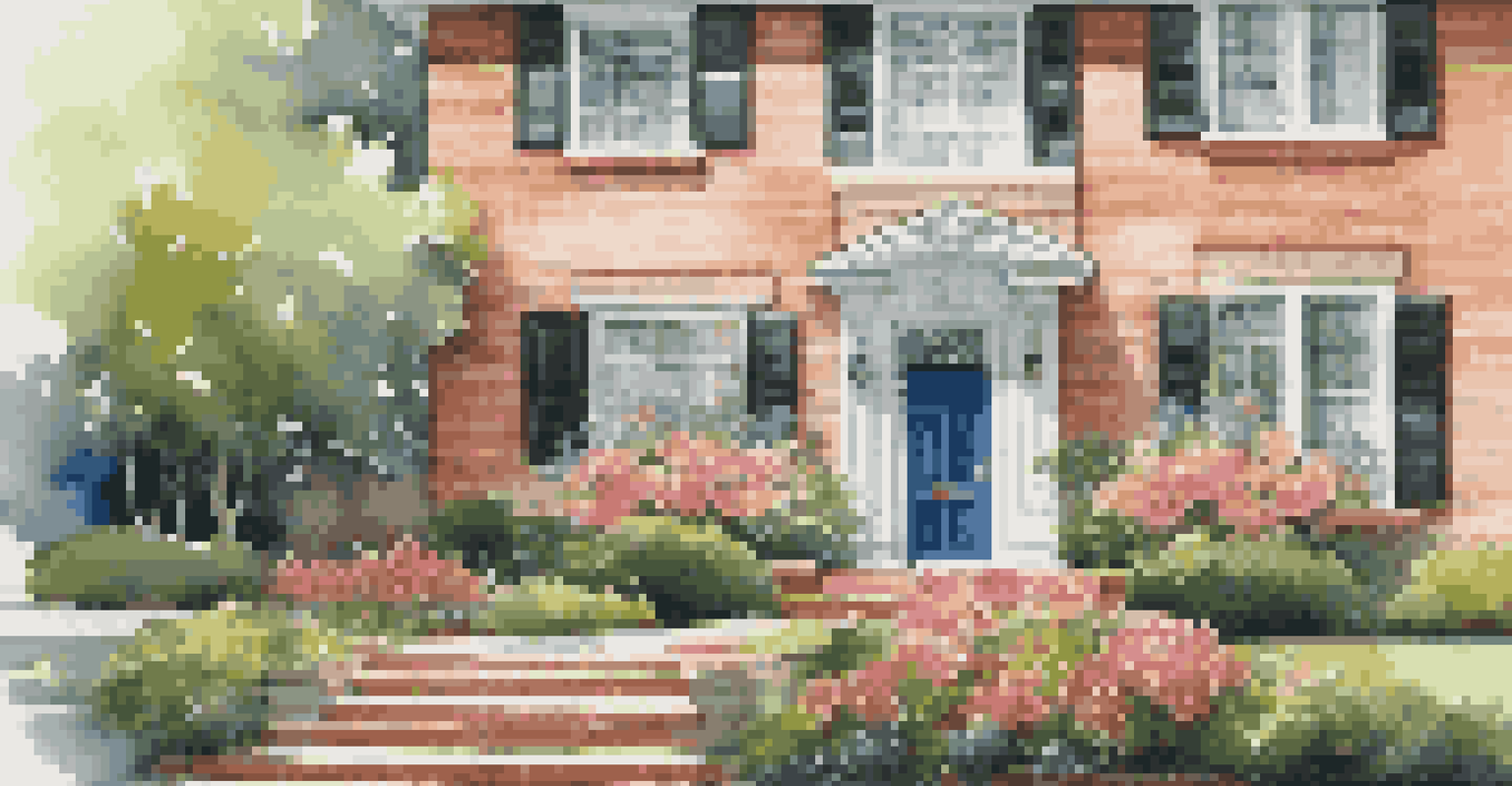The Impact of Poor Maintenance on Luxury Home Value

Understanding Luxury Home Value
Luxury homes are often seen as prestigious investments, often characterized by high-quality materials, exquisite design, and prime locations. Their value is influenced by various factors, including market trends, location, and most importantly, maintenance. When a luxury home is well-maintained, it not only retains its value but can also appreciate over time, making it a smart financial decision.
The bitterness of poor quality remains long after the sweetness of low price is forgotten.
Conversely, neglecting maintenance can send a home’s value spiraling downward. Just like how a luxury car loses its appeal if it’s not regularly serviced, a luxury home requires consistent upkeep to maintain its allure. Potential buyers are typically willing to pay a premium for properties that are in pristine condition and reflect care and attention.
In essence, a luxury home’s value isn’t just about its initial purchase price; it’s also about how well it’s maintained over the years. Understanding this relationship is crucial for homeowners who wish to protect their investment and ensure their home remains desirable on the market.
The Consequences of Neglect
Neglecting maintenance can lead to a host of issues that diminish a home's value, ranging from minor aesthetic problems to major structural damage. For instance, peeling paint or a cracked driveway may seem trivial, but they can signal deeper issues to prospective buyers, potentially leading them to question the overall integrity of the home. This perception can drastically lower the property’s market appeal.

Moreover, deferred maintenance can escalate costs significantly. What starts as a small leak in the roof can evolve into extensive water damage, mold growth, and expensive repairs. Homeowners may find themselves facing hefty bills that could have been avoided with regular upkeep, further impacting their overall investment in the property.
Maintenance Protects Home Value
Regular maintenance ensures that luxury homes retain and even appreciate in value over time.
In the luxury market, where buyers are often discerning and have high expectations, the consequences of neglect can be even more pronounced. A luxury home that shows signs of wear and tear can quickly lose its competitive edge, making it harder to sell and often resulting in lower offers from potential buyers.
The Role of Curb Appeal
Curb appeal is the first impression a luxury home makes on potential buyers, and it can significantly impact perceived value. Overgrown landscaping, dirty windows, or an unkempt facade can detract from a home’s visual appeal, making it seem less inviting. This initial impression can be difficult to overcome, as buyers often make snap judgments based on what they see from the street.
Maintenance is not just about fixing things; it's about preserving the value of what you own.
In contrast, a well-maintained exterior can create an immediate sense of value and luxury. Simple tasks like regular lawn care, pressure washing, and fresh paint can go a long way in enhancing a home’s overall appearance. This not only attracts buyers but can also lead to higher offers when it comes time to sell.
Ultimately, maintaining curb appeal is about more than just aesthetics; it’s about setting the right tone for the entire home. A luxury property that looks neglected from the outside may raise red flags for buyers, who might wonder what other hidden issues lie within.
Impact on Market Perception
Market perception is a critical factor in determining a luxury home's value, and poor maintenance can tarnish that perception. In a competitive market, buyers are not just looking for a house; they are looking for a lifestyle and an investment that reflects quality. If a home appears neglected, it may be viewed as a risk rather than an opportunity, leading to lower interest and offers.
Word of mouth and online reviews can also play a significant role in shaping market perception. If previous owners or neighbors have noted issues with neglect, it could deter potential buyers from even considering the property. This can create a cycle of diminishing returns, where the home becomes less appealing over time due to its reputation.
Neglect Leads to Costly Repairs
Ignoring maintenance can result in minor issues escalating into major problems, leading to significant repair costs.
Furthermore, luxury properties that are perceived to have maintenance issues may struggle to compete with newer builds or recently renovated homes. Buyers often gravitate towards properties that require little to no immediate investment, making it essential for luxury homeowners to stay ahead of maintenance to preserve their home’s market position.
The Financial Implications of Poor Maintenance
The financial implications of poor maintenance extend beyond just a decrease in property value. Homeowners may face increased insurance premiums or difficulty obtaining coverage if their home shows signs of neglect. Insurers are often wary of properties that may pose a greater risk due to deferred maintenance, which can lead to higher costs for homeowners.
Additionally, when it comes time to sell, homes that lack proper maintenance might be subject to price reductions or lengthy time on the market. Buyers are often looking for homes that are move-in ready, and if they perceive that repairs are needed, they may offer considerably less than the asking price. This can result in significant financial losses for the homeowner.
In the long run, investing in regular maintenance can save homeowners thousands of dollars. By addressing small issues before they escalate, owners can protect their property’s value and ensure a smoother, more profitable sale when the time comes.
The Importance of Regular Inspections
Regular inspections are a proactive approach to maintaining a luxury home and can significantly mitigate the risks associated with poor maintenance. By scheduling routine check-ups with professionals, homeowners can identify potential problems early on and address them before they become costly repairs. This not only helps preserve the home’s value but also enhances the overall living experience.
During these inspections, various systems such as plumbing, electrical, and roofing can be thoroughly evaluated. This allows homeowners to stay informed about the current state of their property and make informed decisions about necessary repairs or upgrades. Knowledge is power, especially in the luxury market, where even minor issues can impact value.
Curb Appeal Influences Buyer Interest
A well-maintained exterior enhances curb appeal, attracting potential buyers and positively impacting perceived value.
Furthermore, regular inspections can also provide peace of mind for homeowners, knowing that they are taking the necessary steps to protect their investment. It demonstrates a commitment to maintaining the home’s integrity, which can be incredibly appealing to future buyers who value a well-cared-for property.
Conclusion: Prioritizing Home Maintenance
In conclusion, the impact of poor maintenance on luxury home value cannot be overstated. Homeowners must prioritize regular upkeep to protect their investment and ensure their property remains appealing in a competitive market. Just as a luxury car requires regular servicing to perform at its best, so too does a luxury home need consistent care.
By understanding the various ways in which neglect can affect value—from market perception to financial implications—homeowners can make informed decisions about their property. Investing in maintenance not only safeguards the home’s value but also enhances the overall quality of life for those living within it.

Ultimately, taking a proactive approach to home maintenance is a key strategy for anyone looking to maintain the value of their luxury home. After all, a well-maintained property reflects not just a lifestyle of luxury but also a commitment to quality and care.